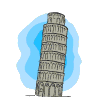Editing synthetic text from generative artificial intelligence – two exploratory case studies
Abstract
As the use of generative artificial intelligence (GenAI) becomes more mainstream, an increasing number of authors may turn to this technology to write directly in a second language, bypassing traditional translation methods. Consequently, professional editors may have to develop new skills: shifting from correcting translation and non-native errors to editing AI-assisted texts. This study includes several stages: participant selection, text planning, prompt engineering, text generation and text editing. The recruited authors provided prompts for GPT-4 to generate texts, edited the output as they desired and then passed them on to professional editors for a final edit. All participants reported their experiences and described the nature of their interactions. The findings reveal that, while GenAI significantly improved the grammatical accuracy of the non-native English texts, it also introduced anomalies. In conclusion, although AI was useful in these two cases, it did not fully replace the human editors, and professional translators-with their language skills-may like to consider offering this additional service. The study also suggests that both authors and editors should be trained in synthetic-text editing to fully harness the benefits of AI-assisted writing, and that further research should be conducted with diverse texts and authors to generalize the findings.
Published in
Translating and the Computer 46: proceedings. Asling: International Society for Advancement in Language Technology, 18-20 November 2024; pp. 35‑46 (ISBN 978-2-9701733-2-8).
 Engaging copy translated literally into English, without taking account of differences in linguistic, semantic and cultural expressions, at best leaves much to be desired and at worst provokes hysterical laughter.
Engaging copy translated literally into English, without taking account of differences in linguistic, semantic and cultural expressions, at best leaves much to be desired and at worst provokes hysterical laughter.
 Thanks to my scientific background, I specialize in technical translations. Over the years I have acquired experience in transcreating advertising copy and press releases primarily for the promotion of technology products.
Thanks to my scientific background, I specialize in technical translations. Over the years I have acquired experience in transcreating advertising copy and press releases primarily for the promotion of technology products.
 "My opinion is very positive, both of the person and the service."
"My opinion is very positive, both of the person and the service."